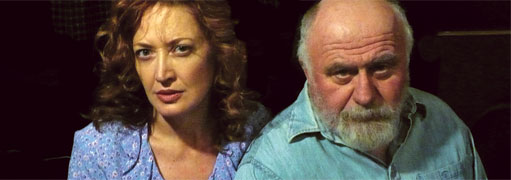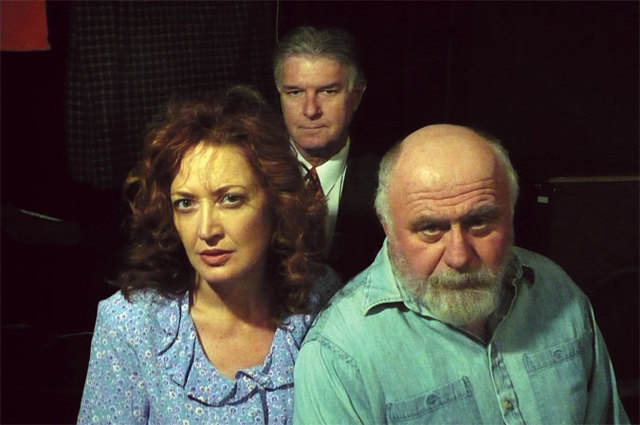A Moon for the Misbegotten might just make you rethink your unhealthy obsessions. If you lust after the tortured Heathcliffs of the world (don’t we all?), it may coax you to consider putting down that penchant. If your days are a haze of drinking alone in the dark, well, maybe it’ll be the moment of clarity that finally sends you to AA … or at least motivates you to consult an electrician. Moon’s author, Eugene O’Neill, was an American playwright, and this story is based in 1923 Connecticut. As the son of an Irish immigrant, O’Neill nodded to his ancestry through two of his main characters: father and daughter Phil and Josie Hogan. Like nearly any play written by or about the Irish, A Moon for the Misbegotten is very sad—for the most part.We meet the Hogans just as the last of three sons is leaving the family farm. Josie gives him a farewell disguised as a fight, with a grin and a handful of dollars pilfered from their father’s satchel. Red-faced Phil comes racing through the meadow to knock some sense into his son (or just pretend to; Phil’s intentions are often hard to read), and the young man runs off in his overalls and straw hat. As Josie and Phil trade barbs with each other (Josie is a “whore,” Phil is an “old fool”), it becomes apparent that this is not what any therapist would call a healthy relationship.Yet it’s also obvious that Josie and Phil love and need each other. They’re the same, and that’s why Josie hasn’t left. Big and tough, they both manage to somehow be mean-spirited and ornery but also vulnerable, and sometimes even sweet. Phil is only a tenant on the farm, which is owned by wealthy New Yorker Jim Tyrone. Jim is based off O’Neill’s older brother, Jamie, who succumbed to an alcoholic death in his forties. Jim stops by the Hogans’ farmhouse frequently for a glass (or a bottle) of whatever liquor Phil has on hand. Jim is charismatic and mercurial, and it’s easy to see there’s a secret fueling his thirst.Josie is in love with Jim but pretends not to be, instead calling herself the village slut to ward off any signs of her imperviousness. Still, she and Jim flirt with each other and make a moonlight date.The rest of the story is an emotional one—sometimes violent, often tender—punctuated by a steady stream of jokes to lift the mood. Good intentions are cloaked as lies, hopes are shattered and rebuilt, and whether this is ultimately an uplifting or tragic tale probably depends on the viewer.The Adobe Theater’s production is well put together, with an intentionally rickety set (it is the front porch of a dilapidated farmhouse, after all) and a trio of passionate actors. Lorri Oliver plays Josie, and it’s hard to take your eyes off of her. She’s biting but playful, insecure but brave, and ultimately she’s the hero in this story. Oliver rocks between her character’s many temperaments with fluidity. The only unbelievable bit is that Josie is supposed to be plain, and Oliver is very pretty. But we’ll forgive her for that one.Phil is played by Scott Sharot, and Vernon Poitras takes on Jim. Both actors throw themselves into the roles, and they do a great job of it. Despite Phil’s verbal abuse, Sharot still makes the character endearing. He’s like an especially grumpy teddy bear. Poitras has the hardest task, playing a tormented but affable drunk who ultimately just wants to be saved—and the actor pulls it off with zeal.While there were a few stumbles over lines on opening weekend, Adobe’s version of Moon is smooth overall. This is good community theater. (Zane Barker, by the way, does a wonderful job with the lighting, taking the audience from midnight to daybreak with noticeable grace.) Moon won’t make you feel good, and it won’t make you feel horrible. But it will stay with you and tempt you to ponder love, ambition, regret and forgiveness.
A Moon for the Misbegotten
Runs through Feb. 5 Fridays and Saturdays, 8 p.m.Sundays, 2 p.m. Adobe Theater 9318 Fourth Street NW Tickets: $15, $13 students and seniors898-9222, adobetheater.org










